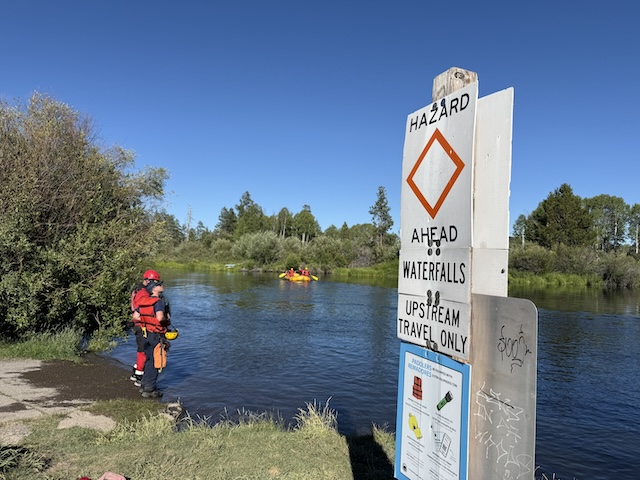Businesses become stars with ‘my stories’
Published 5:00 am Sunday, October 17, 2010

- Products offered at Abe’s Market, a website that sells natural, organic goods.
Once upon a time in Chicago, there lived a man named Abe. He owned a neighborhood pharmacy, Polin Drugs, and worked behind the counter. His father and two sons lent a hand. When people could not afford doctors during the Great Depression, they scraped by on Abe’s free advice. He kept the doors open until midnight. He knew his customers by name.
Two generations later, Abe — or at least this sepia-toned snapshot of him — is the figurehead of an online venture in a world he would not recognize, invoked by a grandson he did not live long enough to meet.
Trending
That venture is Abe’s Market, an e-commerce hub that opened in October 2009 and sells natural, organic and eco-friendly products from more than 180 small businesses around the country. The website’s founders — Jon Polin, 40, and Richard Demb, 33, Chicago entrepreneurs and longtime friends — say they believe they can offer customers something that eBay and Amazon cannot.
Their secret weapon? Stories about decent, hardworking people — people like Abe, Polin’s grandfather.
Abe is a throwback to a world before globalization, to a time when economies were local and transactions were slow, face-to-face and personal. Today, much of commerce feels anonymous. The retail landscape is crowded with big-box stores. Online sales surpassed $155 billion last year and are continuing to grow, according to Forrester Research.
But there are pockets of resistance. The number of farmers’ markets, for example, has more than doubled over the last decade, according to a recent U.S. Agriculture Department report. There are 6,132 registered markets around the country, up 16 percent in the last year. And the consumers who shop at those markets are the sort of people Abe’s Market hopes to attract online.
“People want to buy from other people,” Demb said. “There are very few opportunities to meet the people who make your products. We look at Abe’s Market as a limitless farmers’ market.”
The website offers plenty of getting-to-know-you yarns, starting with the tale of Abe. There are also introductions to Polin, whose “first job was vending peanuts and Frosty Malts at Cubs and White Sox games,” and to Demb, who spent childhood summers on sales calls with his grandfather Morton Einbinder, a wholesale grocer. Today, Polin is a veteran brand manager whose credits include marketing campaigns for Clorox and Capital One. Demb is a former investment banker and co-founder of Dale and Thomas Popcorn.
Trending
Abe’s merchants build individual profile pages, called seller stories, to introduce themselves. For example, Michael Cochrane, the co-founder of Yumnuts in Norwalk, Conn., is a second-generation nut man. He was inspired to create a line of naturally flavored cashews by working with his father, an international nut broker. Erin Krug, a former science teacher in Hanover, Pa., started Krug’s Eco-Logic after friends urged her to sell the creams she had concocted to treat her young children’s sensitive skin. And Karl Wald had a life-changing adventure in Sri Lanka, which led him to create Mr. Ellie Pooh, a Brooklyn company that sells notebooks made with recycled elephant dung.
And the stories keep on coming. On Oct. 18, Abe’s Market plans to introduce Abe’s Live, a streaming online broadcast where sellers will tell their stories and demonstrate products in real time. This is all part of a phenomenon that branding experts call “my story” marketing: a style of reaching out to consumers that emphasizes the people behind the products.
So far, revenue at the eight-employee company is modest: Demb expects Abe’s Market to make $1.5 million in sales for its vendors in 2011. Since May, sales dollars have doubled every 30 to 45 days, he added.
One challenge for Polin and Demb will be to maintain enthusiasm for the online experience offered by Abe’s Market and its vendors — rather than just enhancing the reputations of individual sellers. Most of Abe’s vendors maintain their own Web stores, which means customers are not locked into buying through Abe’s Market. But Polin says he believes that consumers will choose to do their one-stop natural goods shopping at Abe’s.
“We’re often cheaper than buying with our manufacturers directly,” he added, explaining that Abe’s Market offers shipping promotions and gets discounted package rates with UPS. He also says that Abe’s sellers agree to offer their products at the same price or cheaper than they appear elsewhere. Above all, Polin says that Abe’s role as a curator of healthy, eco-friendly goods will appeal to a growing segment of Americans.
Abe’s Market sellers sound happy to come along for the adventure. After all, Abe’s offers the kind of exposure that many tiny companies cannot afford individually. “Our manufacturers are great at manufacturing products,” Polin said. “We’re great at selling products. Let them do their thing; let us do our thing.”








